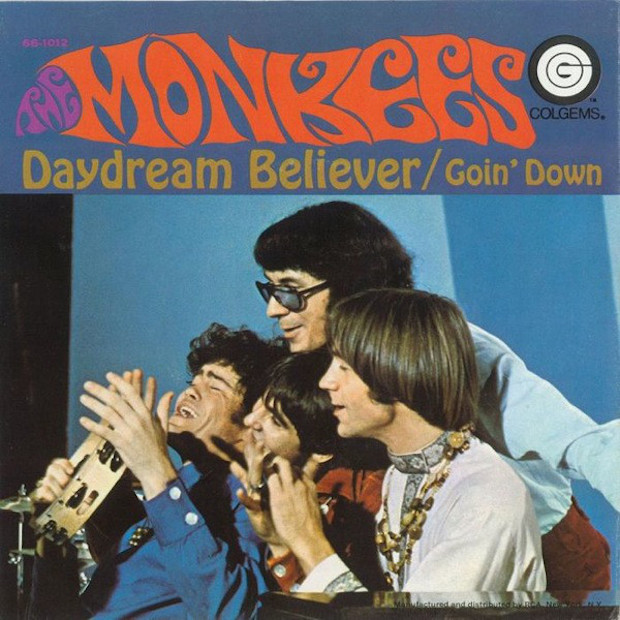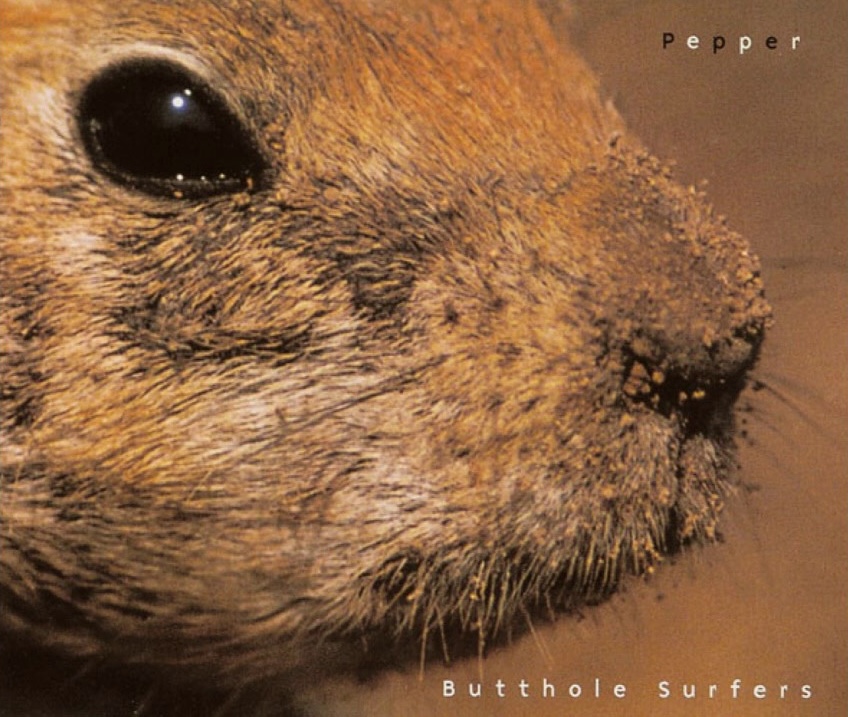December 2, 1967
- STAYED AT #1:4 Weeks
In The Number Ones, I'm reviewing every single #1 single in the history of the Billboard Hot 100, starting with the chart's beginning, in 1958, and working my way up into the present.
There's a beautiful conundrum at the heart of the Monkees. Here we had a fake band, created for a TV show, who turned out to be more successful as a band than they were as a TV show. They also turned out to be a real band -- or, at least, that's what they became. They fought and scraped for some semblance of control over their music, and they outlasted their TV show. The TV show is now a distant memory, and one of the four Monkees is no longer with us, but the band continues on. That's a beautiful story, and it would be more beautiful if not for one thing: The Monkees made their best music when they were a fake band and when the members of the band were almost passive participants in their own musical careers.
Of course, by time time the Monkees finished off their run, the charts were lousy with prefabricated pop groups doing what they could to cash in on the psychedelic culture explosion. The Monkees were merely early to the party. And by the time they were taking control of their own destiny, much of pop music was going in the other direction, toward cheesier and broader fare. By the time the Monkees landed the last of their three #1 singles, they looked practically respectable.
The tensions between the band and their handlers are right there in "Daydream Believer." Monkee Michael Nesmith stole Chip Douglas away from the Turtles and brought him in as the Monkees' producer. Douglas, in turn, brought in the songwriter John Stewart. (Not that one.) Stewart was a member of the Kingston Trio. He'd joined that group after they'd hit #1 with 1958's "Tom Dooley," and he was getting ready to leave.
Stewart had written "Daydream Believer," a song about one half of a couple staring into a mirror and realizing that his marriage has lost its magic. That's a heavy concept for a song. The Monkees did not turn it into a heavy song. (Really, I've always wondered if they ended up recording that song because someone knew it might remind potential record-buyers of "I'm A Believer.")
There's a lyric in "Daydream Believer" that fundamentally changes the whole meaning of the song, and it seems like a minor thing. On the second verse, Stewart had written, "You once thought of me as a white knight on his steed / Now you know how funky I can be." But Arista Records did not want Davy Jones singing about being funky. They knew they had a potential hit on their hands, and they made the group change the line to "now you know how happy I can be." That slight tweak turns "Daydream Believer" from a sober reckoning to a dizzy love song. If Stewart was mad about the change, he changed his mind once the royalty checks started rolling in.
I have heard "Daydream Believer" many, many times, and it never occurred to me, until I sat down to write this column, that it was anything other than a straight-up love song. That's how Davy Jones sings it, his voice gently floating over the strings and pianos. But as a love song, it works well. All four Monkees play or sing on "Daydream Believer," something that wasn't true of their other #1s. On the arrangement, Douglas effortlessly pulls in the strings and horns of that first baroque pop period (just as he'd previously done on "Happy Together"), adapting the Monkees' starry-eyed pop to the psychedelic moment. The song doesn't have the same immediate punch as "I'm A Believer" or "Last Train To Clarksville," but compared to the sunshine-pop dreck that would follow in the early '70s, it remains a gem.
GRADE: 7/10
BONUS BEATS: Here's Japanese garage-pop greats Shonen Knife's 1998 cover of "Daydream Believer":
BONUS BONUS BEATS: Here's the scene from season three of Dawson's Creek where Dawson and Joey sing a karaoke rendition of "Daydream Believer" while Pacey glares at them:
https://youtube.com/watch?v=ydKSeASFBFo
THE NUMBER TWOS: Gladys Knight & The Pips' hard, funky version of "I Heard It Through The Grapevine," which predated Marvin Gaye's take on the song by about a year, peaked at #2 behind "Daydream Believer." It would've been an 8. Here it is:
https://youtube.com/watch?v=BQRcUxNJEbs






